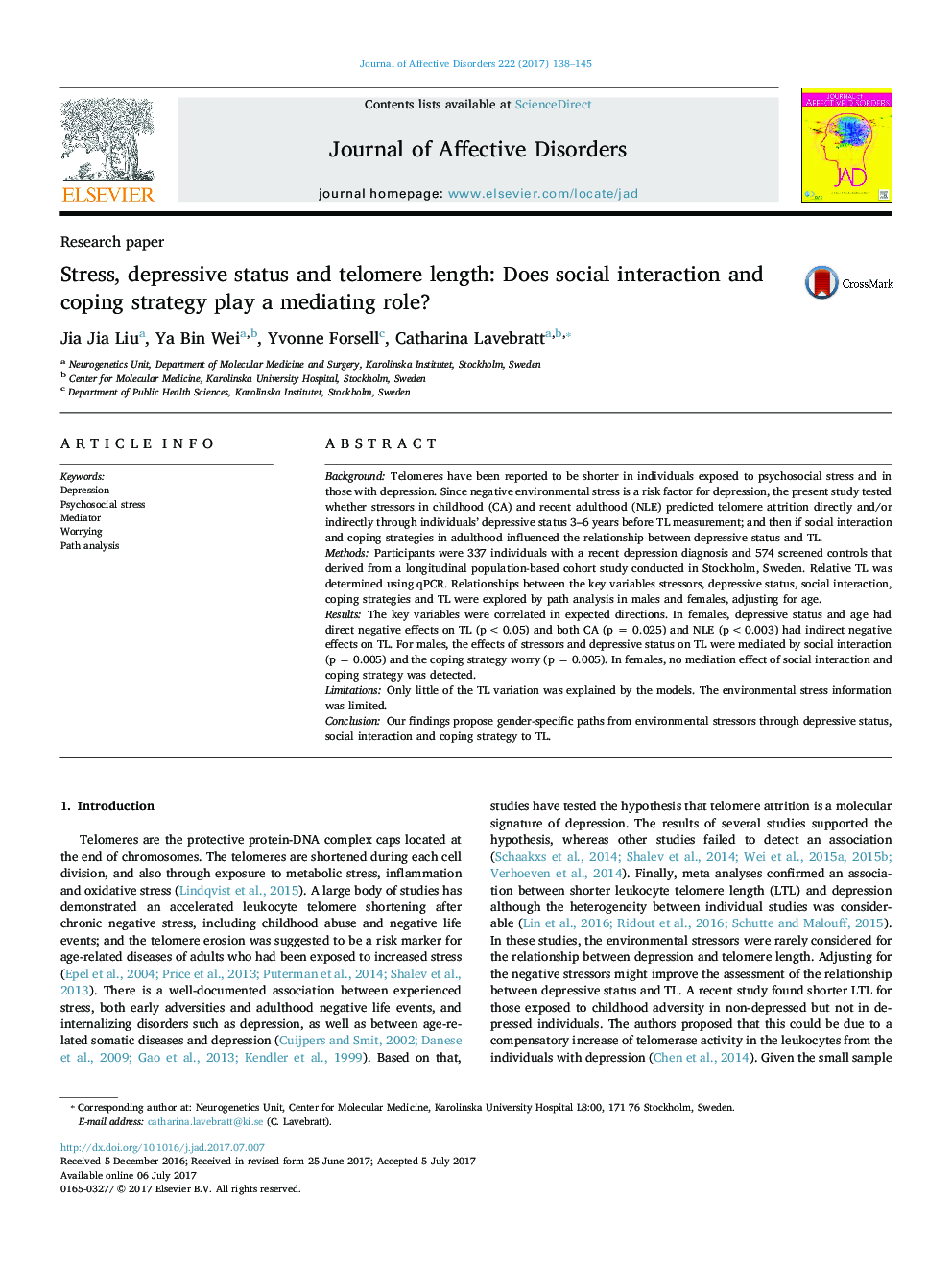| Article ID | Journal | Published Year | Pages | File Type |
|---|---|---|---|---|
| 5721854 | Journal of Affective Disorders | 2017 | 8 Pages |
â¢Stressors associated gender-specifically with shorter salivary telomeres in adults.â¢In females, stress affected telomeres directly and through depressive status.â¢In males, social interaction and coping strategy mediated the effects of stressors.
BackgroundTelomeres have been reported to be shorter in individuals exposed to psychosocial stress and in those with depression. Since negative environmental stress is a risk factor for depression, the present study tested whether stressors in childhood (CA) and recent adulthood (NLE) predicted telomere attrition directly and/or indirectly through individuals' depressive status 3-6 years before TL measurement; and then if social interaction and coping strategies in adulthood influenced the relationship between depressive status and TL.MethodsParticipants were 337 individuals with a recent depression diagnosis and 574 screened controls that derived from a longitudinal population-based cohort study conducted in Stockholm, Sweden. Relative TL was determined using qPCR. Relationships between the key variables stressors, depressive status, social interaction, coping strategies and TL were explored by path analysis in males and females, adjusting for age.ResultsThe key variables were correlated in expected directions. In females, depressive status and age had direct negative effects on TL (p < 0.05) and both CA (p = 0.025) and NLE (p < 0.003) had indirect negative effects on TL. For males, the effects of stressors and depressive status on TL were mediated by social interaction (p = 0.005) and the coping strategy worry (p = 0.005). In females, no mediation effect of social interaction and coping strategy was detected.LimitationsOnly little of the TL variation was explained by the models. The environmental stress information was limited.ConclusionOur findings propose gender-specific paths from environmental stressors through depressive status, social interaction and coping strategy to TL.
